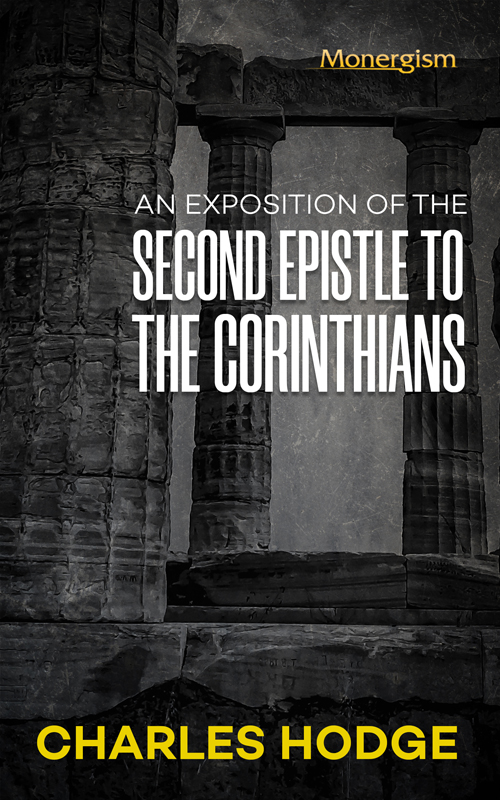 by Charles Hodge
by Charles Hodge
in ePub, .mobi & .pdf formats
AFTER the apostle had written his former letter to the Corinthians, and had sent Titus, either as the bearer of the letter or immediately after its having been sent by other hands, to ascertain the effect which it produced, he seems to have been in a state of unusual depression and anxiety. The persecutions to which he had been exposed in Asia placed him in continued danger of death, 1:8; and his solicitude about the church in Corinth allowed him no inward peace, 7:5. After leaving Ephesus he went to Troas; but although the most promising prospects of usefulness there presented themselves, he could not rest, but passed over into Macedonia in hopes of meeting Titus and obtaining from him intelligence from Corinth, 2:12–13. This letter is the outpouring of his heart occasioned by the information which he received. More than any other of Paul's epistles, it bears the impress of the strong feelings under the influence of which it was written. That the Corinthians had received his former letter with a proper spirit, that it brought them to repentance, led them to ex-communicate the incestuous person, and called forth, on the part of the larger portion of the congregation, the manifestation of the warmest affection for the apostle, relieved his mind from a load of anxiety, and filled his heart with gratitude to God. On the other hand, the increased boldness and influence of the false teachers, the perverting errors which they inculcated, and the frivolous and calumnious charges which they brought against himself, filled him with indignation. This accounts for the abrupt transitions from one subject to another, the sudden changes of tone and manner which characterize this epistle. When writing to the Corinthians as a church obedient, affectionate, and penitent, there is no limit to his tenderness and love. His great desire seems to be to heal the temporary breach which had occurred between them, and to assure his readers that all was forgiven and forgotten, and that his heart was entirely theirs. But when he turns to the wicked, designing corrupters of the truth among them, there is a tone of severity to be found in no other of his writings, not even in his epistle to the Galatians. Erasmus compares this epistle to a river which sometimes flows in a gentle stream, sometimes rushes down as a torrent bearing all before it; sometimes spreading out like a placid lake; sometimes losing itself, as it were, in the sand, and breaking out in its fulness in some unexpected place. Though perhaps the least methodical of Paul's writings, it is among the most interesting of his letters as bringing out the man before the reader and revealing his intimate relations to the people for whom he laboured. The remark must be borne in mind (often made before), that the full play allowed to the peculiarities of mind and feeling of the sacred writers, is in no way inconsistent with their plenary inspiration. The grace of God in conversion does not change the natural character of its subjects, but accommodates itself to all their peculiarities of disposition and temperament. And the same is true with regard to the influence of the Spirit in inspiration.
-----
Table of Contents
Chapter 1: The salutation
Chapter 2: Triumph in Christ
Chapter 3: the Glory of the New Covenant
Chapter 4: Treasure in Jars of Clay
Chapter 5: Ambassadors for Christ
Chapter 6: Paul’s Hardships and God’s Grace
Chapter 7: Paul’s Joy in the Corinthians
Chapter 8: Generosity Commended
Chapter 9: God Loves a Cheerful Giver
Chapter 10: Paul’s Apostolic Authority
Chapter 11: Paul and the False Apostles
Chapter 12: Paul’s Thorn and God’s Grace
Chapter 13: Examine Yourselves, Benediction and Farewell
